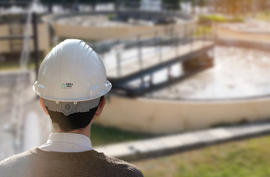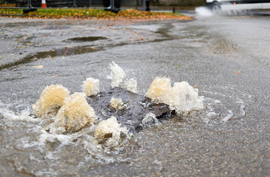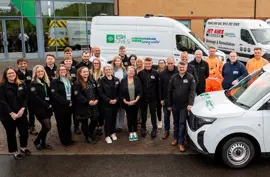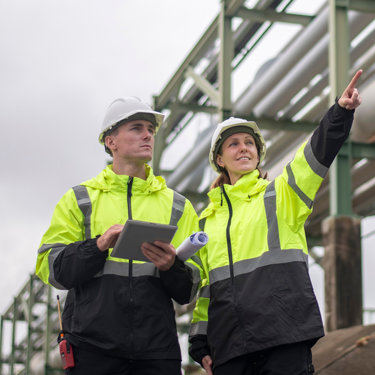The Health and Safety of Spills
Published: 9 April 2020
By: Reuben Richings, Group Technical Manager
Despite the often significant environmental impact of spills, thought is rarely given to risks assumed by clean-up operators. Reuben Richings, Group Technical Manager, provides insight into how we safeguard our employees and clients.
We are often called on to contain, treat and clean up a wide variety of breaches and leakages. These range from hydraulic fluids and paints, that require a mechanical response, to road cleaning and removal of waste using tankers, all the way through to major incident spills, such as high-volume oil or chemical breaches, which demand large scale protection and restoration of entire ecosystems.
With the majority of these representing a potential hazard to the environment, it follows they may also compromise human health and safety. Toxic substances may cause either short-term irritation or longer-lasting conditions, such as occupational asthma, or even instant death if certain chemicals are not handled correctly.
Containment, clean-up and disposal
Whilst no operation is ever 'mundane' or routine, most responses involve three key areas which are centred around containment, clean-up and disposal of substances that, once dealt with properly and quickly, will limit damage to ecologies the environment and human health. Forearmed with the full picture of what we will be getting to grips with, we ensure that all appropriate safety equipment and clothing is employed by anyone going near it and the risks to human wellbeing are generally low.
All our work areas are dangerous due to the nature of our work locations including construction sites, power stations, rail side and airside, petrol station forecourts, terminals, refineries, chemical plants, and ports and harbours.
All these environments contain risks such as unstable structures, high voltage cabling and transformers, flammable poisonous and corrosive atmospheres, working at height, confined space and fast flowing or deep water to name only a few.
Training and certification
Our specialists must be fully knowledgeable in all best practice and legislation for every customer and each of their industries and our specialist services. They must maintain the safety passports and/or additional formal qualifications that are needed to be able to set foot on each client site and operate in such environments – some exceeding statutory health and safety requirements with their own client-specific rules.
Personal Protective Equipment (PPE)
Our personal protective equipment (PPE) is designed for operation in many different settings and must fulfil a huge array of varying functions. While it’s unlikely any individual technician will make full use of their kit, ensuring all employees are properly protected in any potential environment benefits everyone.
Ensuring we can match any clients’ safety wear colour requirements and permutations also gives us an advantage when compiling risk assessment method statements (RAMS) at short notice.
Safety drills
We run regular callout exercises with our major clients to test their protocols and practical physical deployment. These ensure the safety demands of each call-out are met in a more complex, pressurised situation than personnel might otherwise encounter.
Exercises also allow us to pre-compile standard RAMS for every customer which anticipate all possible incidents and how they should be tackled, as well as the precautions that must be taken in general terms.
The skills and capabilities our people are armed with give them the confidence to communicate with customers what they need to know, and challenge established procedures. We want them to be educated enough always to question and expand on what they’re told.
Operators and end users may be experts in what they do, and their operations may well conform to industry standards. However, it is our job to ensure all parties are always safe, and not walking into danger during an emergency response situation.
Environmental response operations require multi-functional rather than generic expertise.
Spill response professionals, as well as their employers, must maintain levels of competency to serve clients from different sectors without compromise.
More from our Knowledge Hub
 News
NewsCelebrating and supporting our veterans at the Forces in Business Awards 2025
 Insights
InsightsRebuilding trust in water: Interim recommendations from the Independent Water Commission
 Insights
InsightsMitigating the impact of the 4 ‘I’s to reduce pollution in water networks
 News
NewsEsh Construction secures Northumbrian Water repairs and maintenance framework
Environmental compliance today, creating a sustainable tomorrow
Helping you reduce risk to the environment and your operation by managing assets compliantly while achieving commercial, ESG, and net-zero goals.
Contact our experts
